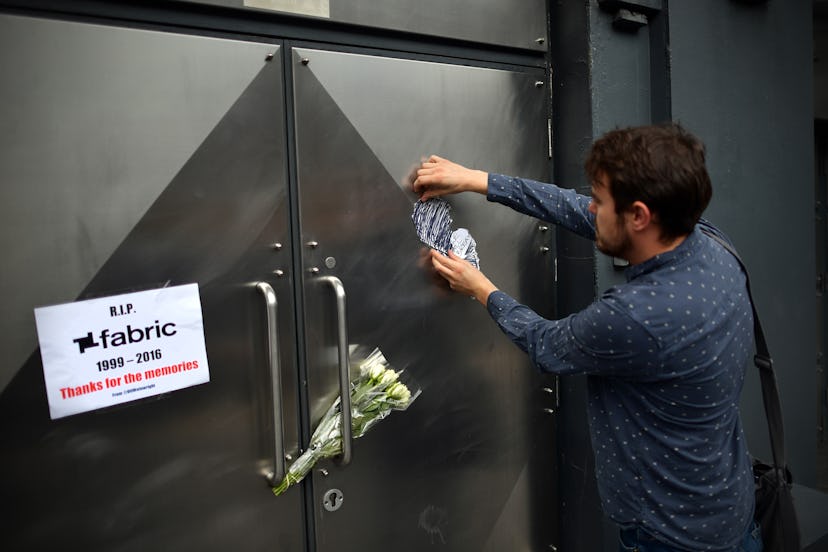London Gets Even More Miserable As Legendary Fabric Nightclub is Shuttered
London’s legendary Fabric nightclub was shuttered last night in another sign that Britain is losing its cool.

Swinging London’s hips came to a sudden standstill last night after the shuttering of the city’s most legendary existing nightclub. The license for Fabric, a place where people raved to the kind of underground dance hits musicians like Kanye or Drake would sample years later, was revoked, with little hope that the club will reopen.
As if Brexit throwing the country’s future into question wasn’t bad enough for the British youth, the city’s nightlife scene, and, to an extent, its full on creative community, is now endanger. 40 percent of the city’s live music venues and 50 percent of London’s nightclubs have closed in the past eight years. Fabric’s closing is just the loudest croak in the death rattle of London fun.
Fabric, housed in a former meat processing factory, first opened its doors in 1999 in London’s Farringdon district and became an incubator for the country’s influential dubstep, breakbeat, and funky genres. In 2007 and ’08 it reigned as DJ Mag’s number one club in the world, and at 15th place in the latest ranking it’s still the UK’s most esteemed dance factory.
The club extended its influence by issuing a series of dueling mix albums, Fabric and Fabric Live. DJs like Diplo, Four Tet, Carl Craig, and Ricardo Villalobos would all contribute. The club attracted a mix of clientele, depending on the night, some of whom were celebs. Katy Perry was once spotted leaving the place with pink pin-up hair.
Though, as it turns out, sometimes people do drugs in nightclubs, and this was simply unacceptable to the local council and police. Six people who had visited the club over its 17-year-history would die, though only one death could be proven to be a result of someone buying drugs at the club. Two of those, however, occurred this summer, leading to a number of recent undercover police operations at the club.
Btraits. Fabric Nightclub, Farringdon, London. (Photo by: PYMCA/UIG via Getty Images)
British newspaper The Independent smells a conspiracy underfoot.
“The undercover police operation found no hard evidence of drug taking inside the venue, relying instead on vague observations,” writes the paper. “In fact, the original undercover police report itself also reported that ‘the general atmosphere of the club was friendly and non-threatening.'”
Even London’s Mayor Sadiq Khan had spoken up in favor of the club, though ultimately business licensing isn’t within his power.
“London’s iconic clubs are an essential part of our cultural landscape,” said the Mayor earlier this month.
British Novelist Irvine Welsh argues the closing as part of an even bigger sea change.
“It’s all about property development,” he told The Guardian. “In the epoch of neoliberalism and corporate elites, entertainment is being privatized, and will increasingly take place with gated communities, owned and rented out by largely foreign investors. The cities need to be kept as sterile and unthreatening as possible for the new overseas owners of them, who can then get trashed behind closed doors or in the mini-club facilities built into their apartment complexes.”
Which, sure sounds fun for those elites, but where will Britain’s next class of cool kids congregate and party? Where will the next batch of British It girls develop their icy cool? Where will the sounds that dominate the runways and radios debut and develop?
That remains in question, but for now, London’s creative class mourns the passing of the club.